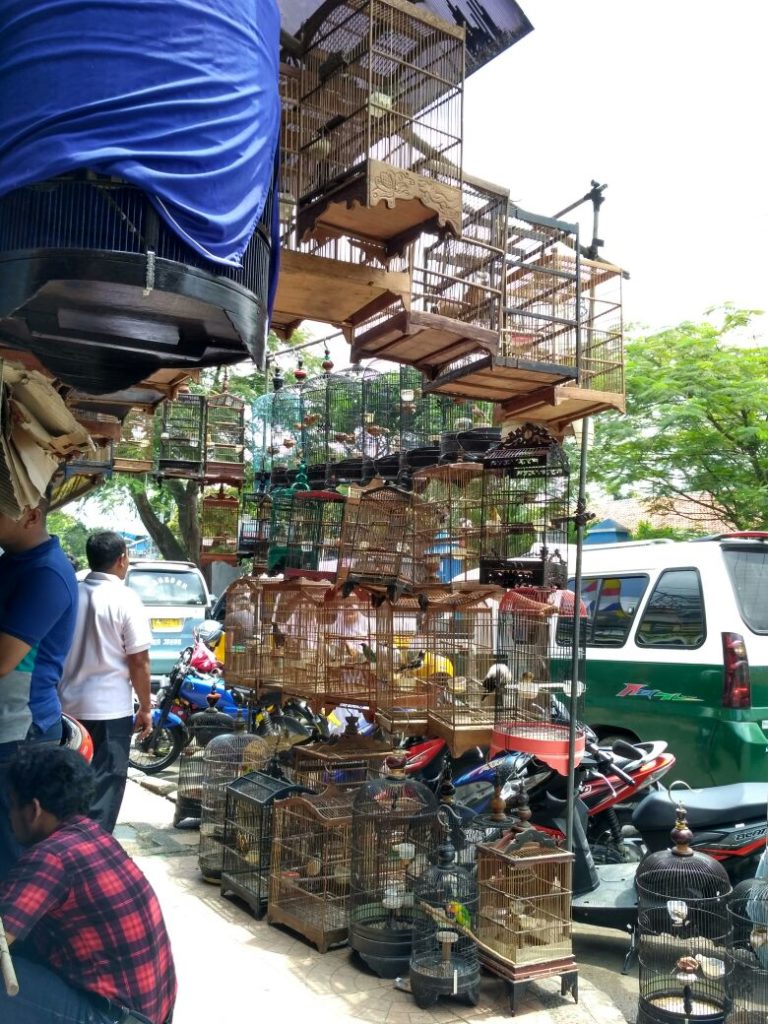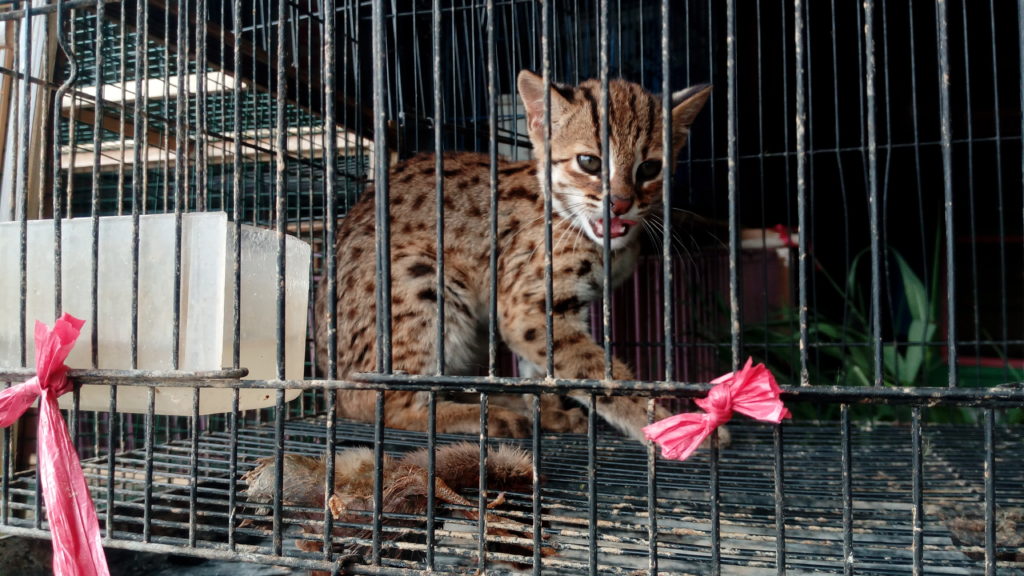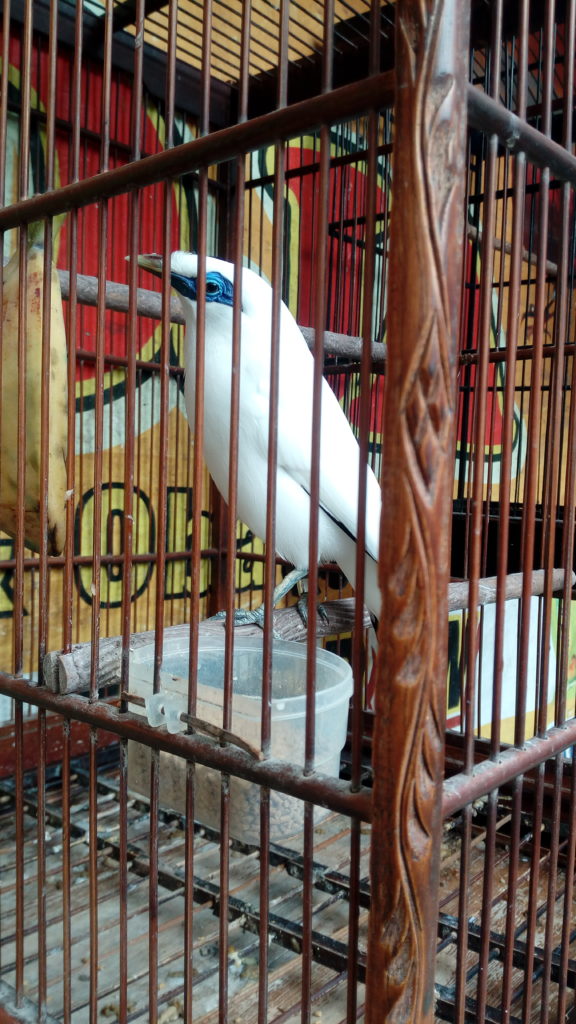Tackling Wildlife Trade
About 75 km to the southeast of the capital city of West Java lies a town with lots of panoramic views. Beaches, volcanoes, hot springs, and other beautiful landscapes can be found easily here. No wonder people call Garut as Swiss van Java. A piece of Switzerland lies in Java.
Every Thursday, I take a project motorbike to go down the hill to the center of Garut for market surveys. The town has two bird markets, Kerkoff and Mawar bird market. They are not far from each other. Kerkoff is more like a bunch of fragmented bird shops, the shops are separated by a big river of Cimanuk. There are 6-7 shops I visit in Kerkoff market. The market has been undergoing some changes over the time such as shop closing down or new shop open. While Mawar market consists of lining bird shops, and behind this, lies the traditional market. Kerkoff is usually busier with birdkeepers than Mawar as its provide more bird species and more number of individuals offered. There is one shop in Kerkoff market that sometimes they sell Mammals such as palm civets, leopard cats, etc. Luckily I never saw slow loris sold there.

Each surveys I conduct, I can find more than 50 species of birds (more than 600 individuals) displayed in Kerkoff, surprisingly high for a small market and more than 20 species (around 100 individuals) in Mawar market. Those numbers include the threatened and nationally protected species. Despite our efforts to tackle the illegal trade by reporting it to the authorities in Garut, I see their number (threatened, protected species or not) rarely gets lower over period. It is actually saddening and frustrating at the same time as we do it every weeks and report it, but nothing changes that much.


Once, we came to the local authority office in Garut, sat down, and asked nicely why it kept happening, and what we could do better. As they opened their mouth, I could guess that classic answer would come out of theirs. It turned out to be true. They just answered that they didn’t have enough space and money for confiscated animals to get rehabilitated. It took a long process as well and they are understaffed. It is true that they can just capture the animals and release it without checking their condition. But even when the dealers are busted during an operation, they just take the information from the traders’ ID card, tell them what they are doing is illegal and they will put a serious action next time they do it, then they just let them away to avoid big conflicts. Of course, it gives no deterrent effect to the traders.
The process of confiscation, rehabilitation, and release require big amount of human and financial resources. They said there was high enthusiasm from people who wanted to work for conservation under the government, but they didn’t have enough money to hire more. Suddenly, corruption and laziness popped out in my mind. Yes, it’s always been the main root issue in the country, not just for conservation but also for other sectors. Such a country with its mega biodiversity doesn’t have enough budget to save what it has is weird for me. It’s also true, though, as our government never prioritizes wildlife, and if they do care, there will still be people with lazy mind wanting to gain money so fast that they don’t care how that money is supposed to be spent effectively for publics.
Those are not the only problem. Some people in Indonesia doesn’t really appreciate process. They would do something instantly to get money without thinking the negative impacts it may cause. Without giving time for nature to recover, they poach wildlife. Some of them also think that leaving such jobs will kill them and their family as they feel that is the only thing they can do to earn money. So, when they feel destined to be a poacher, they will not stop until there is nothing left for them to poach. This is another hard job for conservationists to change such perceptions.
The battle against wildlife trade is still far from over. So are the battle against habitat loss and other conservation issues. Beside battles, we also have a race against rapid extinction. If we can win the battles, we can win the race. Until then, all the frontliners of wildlife protectors must never give up. ABDULLAH

